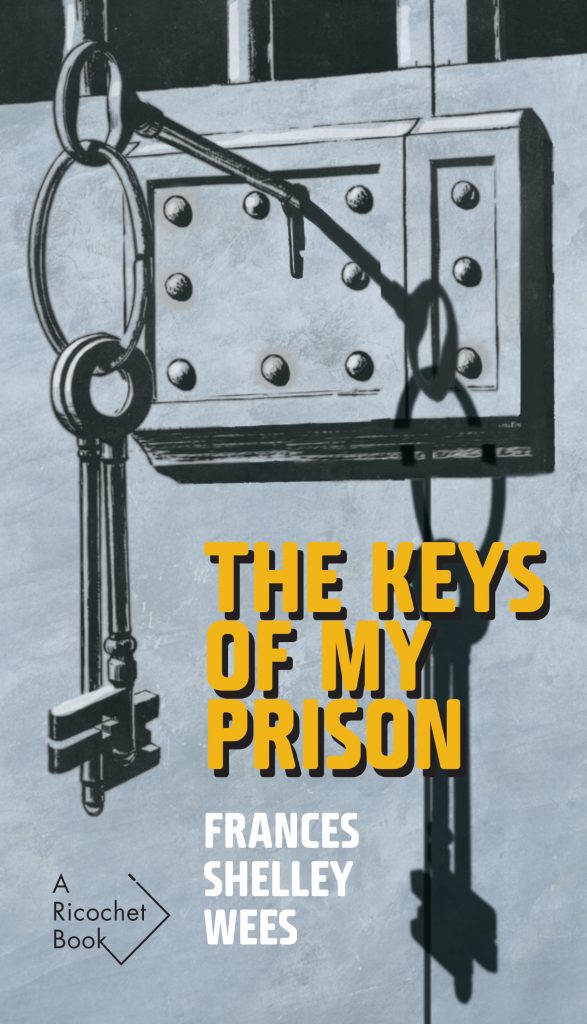
The Keys of My Prison, Frances Shelly Wees, 187 pgs , Véhicule Press,, vehiculepress.com,$14.95
The Keys of My Prison deserves to be elevated to a classic of Canadian literature. Originally published in 1956, it has been out of print since 1966. Hopefully this new edition, part of Véhicule’s Ricochet Books imprint, which features vintage Canadian crime novels, will bring Frances Shelly Wees to belated prominence.
Like many a good mystery or thriller, the story begins with a man in a coma. Wees’ ability is soon apparent in her description of the hospital day nurse: “Absorbed in counting pulse-beats, she forgot to cover that inner self of hers, the curious, envious self that was so obvious in spite of the certainty of her bearing, the crispness of her uniform, the brassy smooth perfection of her dark-blond hair…” Minor characters come to life in a paragraph or two, ready to offer a fresh perspective or a new possibility.
The major characters arrive in the same bright colours. When Rafe, the central character, wakes up, he has amnesia and is so changed he seems like a completely different person, even to himself as he learns how he is supposed to be. The premise is simple enough but it is built upon patiently, confidently, with germane or essential backstory and from competing emotionally and intellectually convincing perspectives. Amnesiac Rafe is roguish, yet we like him and can see his point of view in spite of ourselves. Rafe’s wife, Julie, is tragic and complex, shrewd and naive at once.
“…You’re a damned pretty girl but I wouldn’t have married you. You’re not the kind I go for. You’re little and scared and soft and easy. I never did like that kind of woman. I like them with guts.”
After a moment Julie said, “Do you? What colour guts, blonde or brunette?”
“Well,” he said. He laughed. “Well. Maybe I misjudged you.”
Julie’s watchful Scottish aunt, Edith, is the story’s Cassandra and also reveals the family’s dark past. Robin is a bookish, conflicted friend who both directs and muddies our suspicions. There is a constable and police psychologist who reminded me of Archie Goodwin and Nero Wolfe; the mystery’s feints and revelations also reminded me of good Rex Stout. In an online review, Brian Busby compared the novel favourably to average Margaret Millar; I will now finally get around to reading Millar to see if her average could really be as good as this marvellous book. (Feliks Jezioranski)
